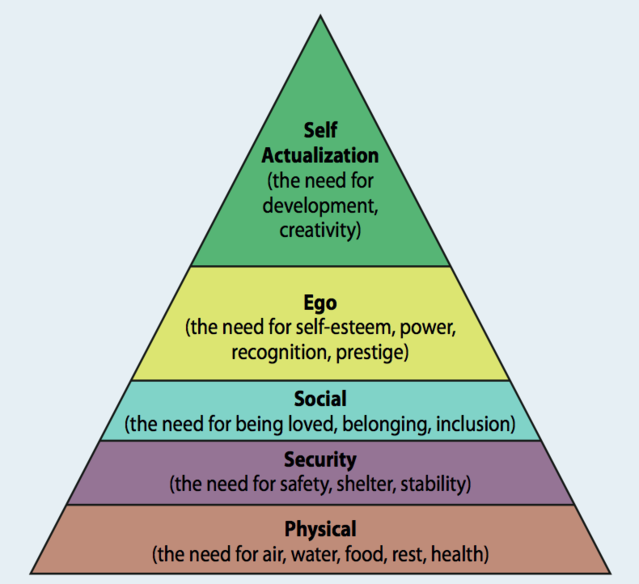This blog is steadfastly non-political for a reason – it doesn’t seem like a path to happiness, and often is quite the opposite. Yet, when I look at people at these rallies and see their hopeful, smiling faces, I wonder if perhaps this is a road to happiness. Seeing throngs of smiling people, one could draw the conclusion that politics is a clear way to make a large group very happy, joyful even. We feel like we’re part of something huge, something generational, especially during this election.

Of course, after tomorrow, whenever we find out the result of the US election, there will be a recoiling, a convulsion of a large number of people. They’ll feel like the other half is nuts, crazy, or worse, evil. They might feel robbed, especially if like in Bush v. Gore, it’s close. These faces will have turned 180 degrees in a day, raising the question: Can politics make you happy? My answer is an emphatic no. Let’s explore.
Happiness is found in gradients and is explored effectively by reviewing Maslow’s Pyramid, shown below.

A review of the Pyramid is in order:
Maslow called the bottom four levels of the pyramid “deficiency needs” because a person does not feel anything if they are met, but becomes anxious if they are not. Thus, physiological needs such as eating, drinking, and sleeping are deficiency needs, as are safety needs, social needs such as friendship and sexual intimacy, and ego needs such as self-esteem and recognition. In contrast, Maslow called the fifth level of the pyramid a ‘growth need’ because it enables a person to ‘self-actualize’ or reach his fullest potential as a human being. Once a person has met his deficiency needs, he can turn his attention to self-actualization; however, only a small minority of people are able to self-actualize because self-actualization requires uncommon qualities such as honesty, independence, awareness, objectivity, creativity, and originality.
https://www.psychologytoday.com/us/blog/hide-and-seek/201212/our-hierarchy-needs
Politics is suspiciously absent in that list, at least at first blush. But a deeper look shows that political strategy is readily apparent when viewed through this framework.

The pyramid works from bottom-up – you can’t go to the next higher stage before you accomplish the base stages. The lower stages map to the primal areas of our brain and our needs. So, where do you think politics starts? At the top, with self-actualization or recognition? Nope! They go for the base needs, which makes entirely good sense as a strategy. Let’s walk the pyramid:
Physical: Air, food, health, shelter – there is a real belief that these things will be taken away if we don’t vote correctly.
Security: This is a favorite. If one side can cause you to fear for your security, then bam, they got you. What are you afraid of? That’s probably where your party has you pegged.
Social: This is where social media comes in. Who goes to Twitter to look for the opposite opinion? No one, at least not immediately. The appeal of these social networks is that we can find inclusion. That lets us go to the next level.
Ego: Nothing says politics like Ego. If one can feel elite, that they’re making a big sacrifice or part of a bigger battle, then Ego can be satisfied. This is where it can get dangerous if adherents go sacrificial, or get violent for the cause.
That leaves us with Self-Actualization. It is my view that this is where politics fail fabulously. Politics is a game, a win-or-lose proposition. Self Actualization is about finding your inner purpose, your truest self, and doesn’t fit into that simplistic competitive domain. Happiness and fulfillment are iterative, incremental, and ebb and flow as you move higher into yourself.
In addition to the qualities noted in the above diagram, self-actualization is also often marked by “peak experiences.” Mystical or spiritual experience is most definitely an example of a “peak experience.” The need for self-actualization is described as the “desire to become more and more what one is, to become everything that one is capable of becoming.
https://www.religioustolerance.org/maslow-hierarchy-of-needs-world-religions.htm
Therefore politics is a double-hit on happiness: if you win, and you’re totally devoted to this world, it cannot take you to peak experience. If your side loses, you become existentially terrified, since the bottom planks that form your basic survival are now under attack. We see this a lot with the dressing of people in outfits from the dystopian show “A Handmaid’s Tale” – it’s a devastating feeling that you’re under imminent attack. On the other side, they show burning buildings and cities “under siege”. Both are as effective as they are hyperbole designed to upset you. By taking away the lower planks, they scare you into this strange center place – you belong (mid pyramid) but you’re constantly under siege and unable to achieve self-actualization, which is where true, durable happiness exists.
We see this a lot with the dressing of people in outfits from the dystopian show “A Handmaid’s Tale” – it’s a devastating feeling that you’re under imminent attack. On the other side, they show burning buildings and cities “under siege”. Both are as effective as they are hyperbole designed to upset you. By taking away the lower planks, they scare you into this strange center place – you find belonging (mid pyramid) but the base of your happiness is constantly under siege. By making politics the end-all-be-all, we’re unable to achieve self-actualization, which is where true, durable happiness exists.
I’m not trying to discourage political activism. Far from it – I think we all should be engaged in the issues of our day. I am. I vote, I debate, and I care. However, I stand guard over my fears and shield myself when the political apparatus come for my security. I know they’re going to and I have to seek solace from that input to ensure they don’t compromise who I am.
I’m suggesting balance. Repeat these terms and see if you can convince yourself of their veracity:
I am not my candidate.
I am not powerless.
I am not under attack (really!)
Democracy isn’t at stake (I promise!)
The presidential election isn’t the end of the world.
Those statements should not be controversial. If my side wins, great. If my side loses, I’ll be sad, roll up my sleeves, and get to work for the next election in two short years. Check out this quote from Scott Rasmussen:
“There will be differences, of course, because elections matter. They have consequences. But it’s important to remember that politicians aren’t nearly as important as they think they are.“
Scott Rasmussen, Deseret News
The soul of our nation is at stake? Think again, another article by Mr. Rasmussen:
“It is the recognition and respect of our fellow human beings, humanity and dignity, that helps us transcend “us” and “them” tribalism and forms the foundation for a more perfect union.”
Scott Rasmussen, Deseret News
Mr. Rasmussen is right on both counts. Our nation’s soul is an amalgam of what we are, who we are, and how we treat each other. Mixing religion with politics is a quagmire. It’s a mistake to believe that you know who God would vote for. Sure we pray for guidance, but The Creator of the Universe cannot be thwarted by an election. He/She/It has methods beyond our understanding. Don’t fear for God – he can take care of himself.
Back on earth, one must marvel at the genius of the American system (and its craziness) with its three-pillar structure. Pitting three branches of government against one another was brilliant, and gives citizens many opportunities to engage. Engage we should, with a guarded heart. Know that these forces are pulling at your foundations, trying actively to upset you, to pull away from your security. Guard against making more out of it than it is. Our personal journey towards self-actualization should not depend on who is sitting in the White House. Said another way – politicians make terrible gods, and politics is empty religion.
